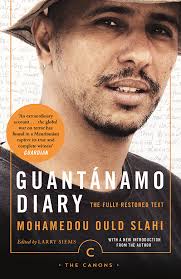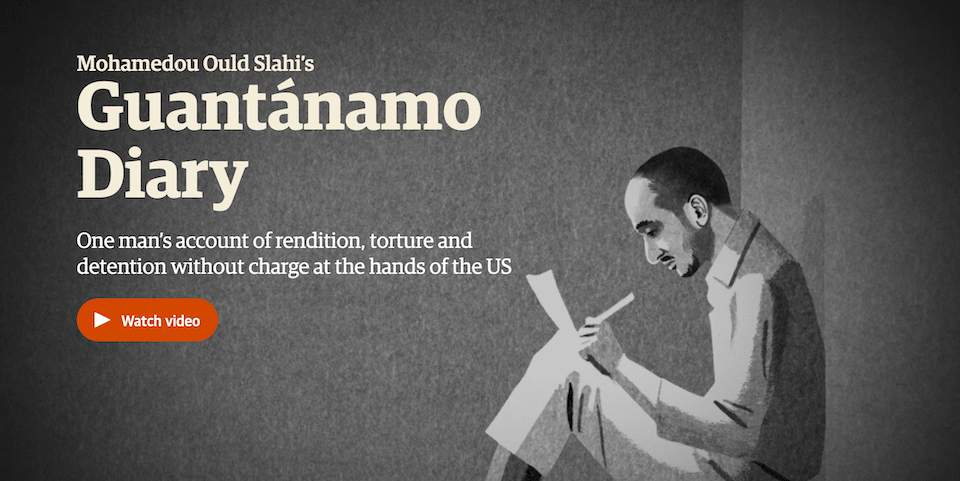Guantánamo Diary, a very important book
I am always happy to read a good novel, but what I absolutely favour in my reading are true stories and biographies. I recently read a very important book, that will stay with me for a long time to come. It is Guantánamo Diary, by Mohamedou Ould Slahi, a Mauritanian man imprisoned without charges in the infamous penitentiary.
I practice Linguistic Empathy and I expect you to do the same. Please bear with me if my English is not perfect.
Guantánamo Diary is not only the chilling account of life under constant torture (all sorts of) in Guantánamo Bay prison and the prisons Mohamedou was taken before, but mostly the denunciation of the absurd and unacceptable situation this young man found himself in.
Mohamedou was imprisoned in 2001 by the US that pressured his own government in Mauritania to detain him and deliver him to them. He has never been charged with a crime, but questioned and tortured and put under enormous pressure just because he is apparently suspected of plotting against the US (where he never set foot).
In his youth, Mohamedou had joined Al Qaeda to fight the communist regime in Afghanistan, but completely severed ties with them after its fall.
There is no evidence against him, but the US government keeps him in Guantanámo.
 He was summoned at the police office of Nouakchott, where he was living and working in 2001, for some “clarifications”, and his family never saw him again, nor knew what had happened to him. By pure chance his brother, presently living in Germany, read his story on the Spiegel, and found out Mohamedou was being kept in Cuba.
He was summoned at the police office of Nouakchott, where he was living and working in 2001, for some “clarifications”, and his family never saw him again, nor knew what had happened to him. By pure chance his brother, presently living in Germany, read his story on the Spiegel, and found out Mohamedou was being kept in Cuba.
Mohamedou started hand writing the manuscript in 2002 and when he was finally granted legal assistance, he slipped pieces of it to his lawyers, who fought hard to publish it. The manuscript was kept as classified material for six years, and declassified in 2012, when it was given to editor Larry Siems, who finally printed it, keeping all the censorship intact. All through the book you come across chilling black lines that hide names and facts.
Even so, though, Guantánamo Diaries manages to convey the horror of the situation. The more Mohamedou writes in a deeply human voice, the more the absurdity of the event strikes you. He stays focused, lucid, is sometimes ironic and witty, and even manages to depict his torturers without grudge, but as human beings involved in an absurd game.
What I found devastating and made me love Mohamedou deeply, is his simplicity in telling how terrorized he is. The empathy I felt for him all through the reading was profound. For months he lived in constant fear of interrogations and tortures, deprived of sleep, unable to eat, utterly depressed.
Mohamedou remains in prison, without charges. I can only hope torture has stopped by now. And I do hope you’ll read the book and find out as much as you can about this terrible event. The book’s website is a good starting point, don’t miss the video: http://guantanamodiary.com Guantánamo Diary has been translated into several languages.

